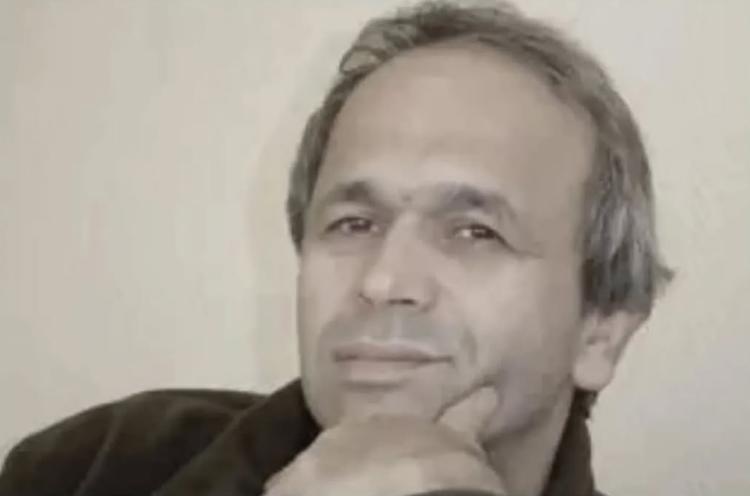Fariba Amini
Nothing takes me
from the butterflies of my dreams
to my reality:
not dust and not fire. What
will I do
without roses from Samarkand? What
will I do in a
theater that burnishes the singers with its lunar
stones? Our
weight has become light like our houses
in the faraway
winds. We have become two friends of the strange
creatures in the
clouds … and we are now loosened
from the gravity
of identity’s land. What will we do … what
will we do
without exile, and a long night
that stares at
the water? — Mahmoud Darwish

Newark, Del.
(Special to Informed Comment; Feature) – Ebrahimi Nabavi was an Iranian
satirist. On January 15, 2025, he took his life at the age of sixty four in
Silver Spring, Md. He never felt at
home, whether in Brussels or in the vicinity of Washington, D.C. He always wanted to go back to Iran. He was
one of the reformists who took on the mantle to criticize the Islamic
Republic. He was imprisoned. He shared the same block with other famous
prisoners.
He did stand-up
comedy. He wrote satirical views on
different media outlets, first in Iran and later in Europe and in the U.S.
I didn’t always
agree with him. He wrote an article to
which I felt the need to reply. I wish I
had known him better.
But what happens
to luminaries who die in exile, either naturally or by taking their own lives?
In 1942, Stefan
Zweig took his life in Brazil. He had
seen the devastation of his homeland Austria and, later Germany, by the
Nazis. He could not tolerate it.
Such people tend
to be more sensitive than others. They
are not weak but more emotional perhaps.
Or this world of ours is too much for them to handle.
Gholamhossein
Saedi, a renowned playwright, a physician from Tabriz was one of them. He immigrated to Paris. He never liked the
city, even though he tried. He wrote
his essays and tried very hard to become part of Parisian intellectual
life. He said, I can relate to Paris,
but Paris is not Tehran. My pen does not
write well in Paris.
Gholamhossein
Saedi; h/t Wikimedia
“All the
buildings in Paris are like a theatre décor.
I feel as if I am living in a post card,” he wrote.
In a way he also
committed suicide. He died at the age of
49.
I met him in
Tehran after the Revolution at his house and then, much later, in Paris. He was not the same man.
He was laid to
rest in Père Lachaise where many famous people are buried. A few weeks ago, his tombstone was
desecrated in a terrible way. Someone urinated on it.
Saedi was a
famous person; he had been incarcerated by the Shah and then by the Islamic
Republic. A few of his plays were turned
into films, among them the Cow by the famous film maker, Dariush Mehrjoui.
Ebrahim Nabavi
took his life perhaps because he could not stand to be away from his homeland.
Who knows?
What drives some
people to suicide?
They both shared
one thing: A long-lasting love for
Iran. An Iran they could neither live in
nor leave behind.

No comments:
Post a Comment